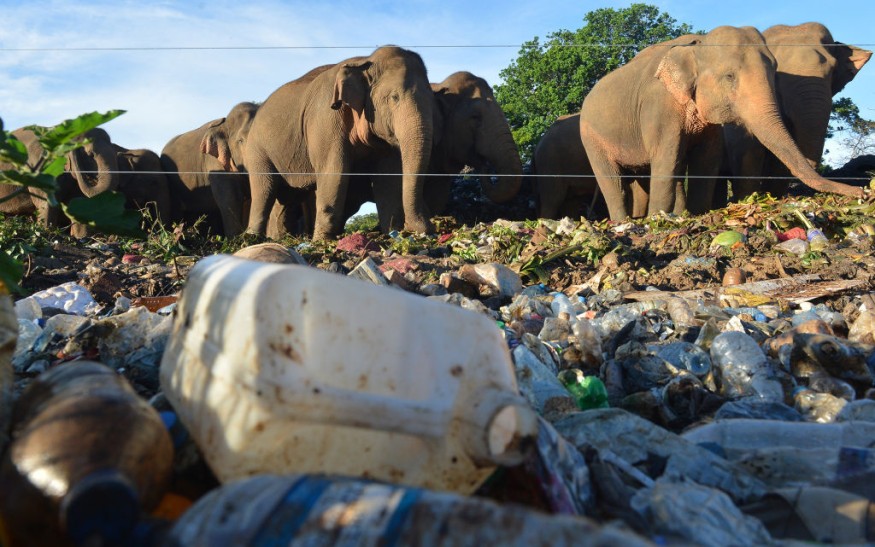Following two further elephants discovered lifeless over the weekend, environmentalists and vets are worrying that toxic trash in a landfill in eastern Sri Lanka are poisoning the animals.
Over the past eight years, approximately 20 elephants reportedly perished after devouring polyethylene rubbish in the landfill in Pallakkadu hamlet in Ampara area, roughly 130 miles east of the metropolis, Colombo.
Hungry Elephants Dies Due To Plastic Waste

According to conservation physician Nihal Pushpakumara, investigations of the deceased mammals revealed that they had consumed substantial quantities of polymeric material discovered in the dumpsite.
"The primary substances we could see in the case studies were plastic, food containers, polyester, various non-digestible, and steam which are the regular diet that elephants consume and process was not visible," he stated.
Overhead film depicts over a handful starving elephants rummaging a dump in eastern Sri Lanka for nourishment.
According to city governments, the elephants were consuming garbage together with kitchen waste, which is currently poisoning them.
Elephants are beloved in Sri Lanka, yet they are also in risk of extinction. As per the nation's inaugural elephant survey, their population has declined from around 14,000 in the 19th century to 6,000 in year 2011. They are becoming extremely endangered as a result of habitat fragmentation.
Many go near human communities in order to hunt, and others are murdered by burglars or landowners enraged by yield loss.
As per the World Wildlife Fund, "The Sri Lanka elephant is secured within Sri Lankan legislation, and murdering one entails the life sentence."
Desperate elephants sought out rubbish in landfills, devouring polyethylene as well as pointy things that harm their stomachs, as claim by Pushpakumara.
"The elephants then quit consuming and grow extremely feeble to maintain their huge bodies straight, which causes them to be unable to swallow nourishment, hastening their mortality," he explained.
Sri Lanka Government Fails To Protect Elephants?
To avoid elephants from ingesting waste material, the authorities declared in 2017 that it would process rubbish in landfills bordering nature reserves.
It further stated that barbed wire fences will be installed surrounding the locations to prevent wildlife at bay. Neither, however, was successfully executed.
Representatives also identified 54 garbage landfill in conservation areas throughout the nation, with over 300 elephants wandering nearby.
The trash treatment facility in Pallakkadu hamlet was established in 2008 with European Union assistance. Trash from nearby communities throw their garbage there, even if it is not recycled.
The electrified barbed wire around the property was destroyed by thunderbolt in 2014, and officials simply never rebuilt it, enabling elephants to approach and search throughout the waste.
Homeowners claim that elephants have migrated nearer to and camped around the trash dump, instilling terror amongst local communities. Numerous residents use fireworks to scare away wildlife that trespass into the community, while most have built barbed wire fences surrounding their residences.
However, the locals sometimes do not know how to construct the concrete barriers safely, which may risk their respective safety as well as that of the elephants, according to Keerthi Ranasinghe, a native community delegate.
"And although we label them a threat, untamed elephants are also an asset," he added.
"Officials must devise a means to preserve equally civilian lives and wildlife while also allowing us to maintain our farming operations."
© 2025 NatureWorldNews.com All rights reserved. Do not reproduce without permission.





